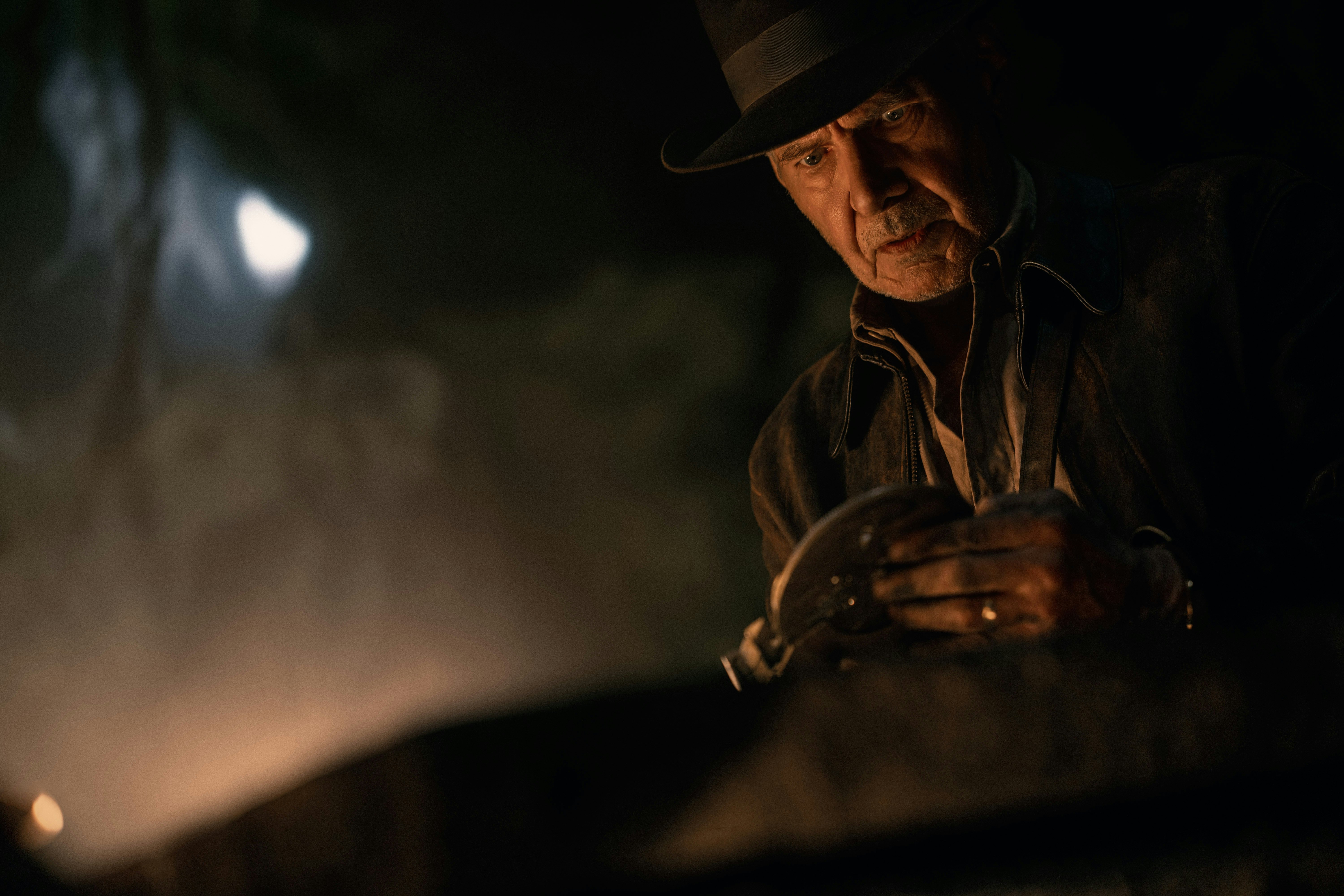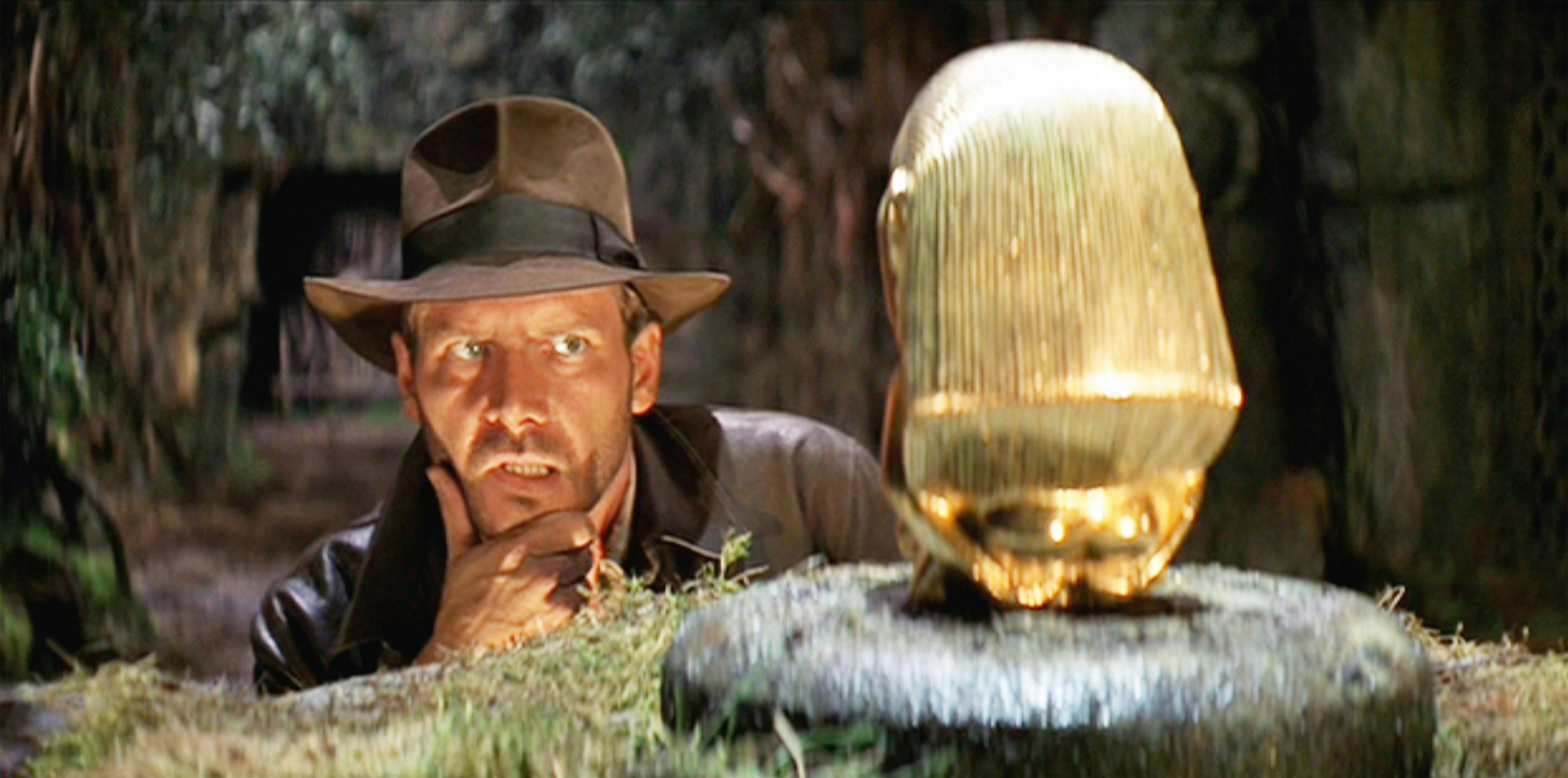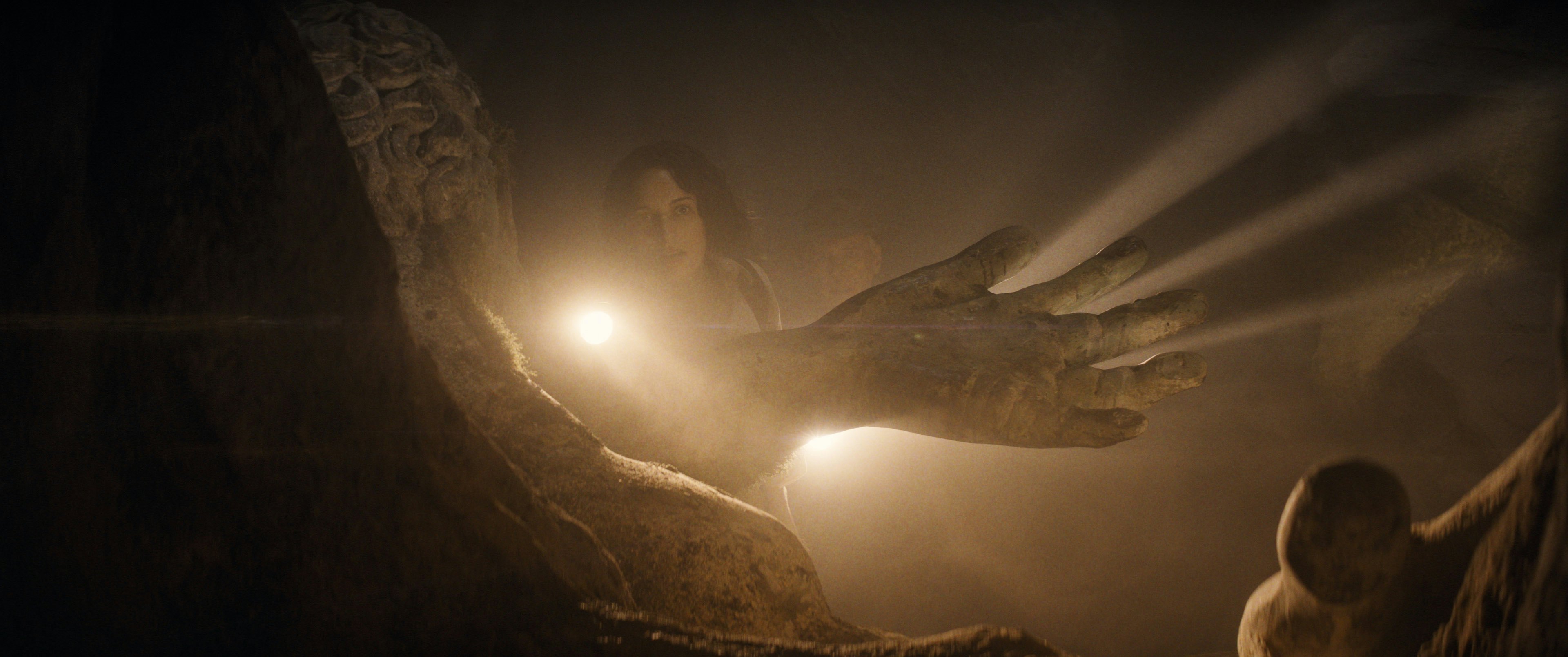
A key lesson seems to have been learned by Lucasfilm after the fan backlash to Kingdom of the Crystal Skull. Yes, that film was so detached from reality that its fridge-nuking sequence made Looney Tunes look like social realism, but with its History Channel hypothesis that Mayan gods were, in fact, aliens, it was clear to Lucasfilm that wherever they took the next installment, they had to honor the series with a suitably galaxy-brained plot twist.
Thus, we have Dial of Destiny, which climaxes with Indy, new pal Helena Shaw (Phoebe Waller-Bridge), and a plane full of Nazis in Archimedes-era Ancient Greece via a fissure in time. Does it work? Not really, not least because nothing in the past two hours has properly recaptured that Spielberg magic. But the climactic foray into time travel misses the key ingredient to Indy third act magic — something that was also missing from Kingdom. Indiana Jones, after all, has always been about religion.

Both Steven Spielberg and Raiders screenwriter Lawrence Kasdan are Jewish, and Spielberg’s religious fascination is clear not only in his films that centralize Jewish characters, but also in his escapist Raiders of the Lost Ark. The Ark of the Covenant belongs to all Abrahamic religions, and is often associated with a God of tremendous power and terrible wrath. Raiders can even be interpreted as a subversive Jewish text: a film written and directed by Jewish men, where Nazis try to harvest the power of Jewish religion, and are constantly gunned down, brutalized, and eventually exploded by a power they’ve always tried to undermine. (Sure, key collaborator George Lucas was raised a Methodist, but as one of the most fervent and uptight Christian sects, his perspective on God’s wrath is welcome too.)
Throughout the trilogy, we see Indy confront monotheistic and pagan gods, and each time he chooses to not meddle with their power, like he’s learning from all the Old Testament characters who failed to appropriately honor their god. Raiders ends with a clear, “Well, that was scary, let’s not mess with that anymore,” and each of the following films focuses on different religious obsessions, including Last Crusade’s father-son decision to let go of the tantalizing promise of eternal life. Temple of Doom is the only film where religion — in this case Indian paganism — is accessed from an outsider’s perspective, resulting in Orientalist and colonialist stereotypes being replicated throughout.
While Kingdom and Dial both feature as much fantastical power and awestruck, slack-jawed characters realizing, “we shouldn’t have come here” as the original trilogy, they choose to make their grand reveals — aliens and time-travel — not religious, but science-fiction. They’re fun, and arguably aren’t too ridiculous for the series (when has Indiana Jones not been completely ludicrous?) but there’s no way we can reference or access these plot devices through any lens except a fictional one.

While there’s no way that Abrahamic or pagan gods exist, the reverence and fear human beings feel towards these deities is a very real and recognizable concept, one that Spielberg et al. are clearly channeling in the original films. It’s a human dynamic that helps ground the heightened spectacle, adding gravitas to what in any other context would be very silly. Without that, the climaxes of Kingdom and Dial feel untethered. Indiana Jones films don't assume we believe in God or try to persuade us to do so, but the fears they tap into in the climaxes do resonate with all audiences with a basic familiarity with faith.
This decision feels very on brand for Disney, who produced Dial of Destiny after their 2012 acquisition of Lucasfilm. With their sanitized, corporate output, there’s no room for anything as messy, personal, or potentially divisive as religion. None of their depictions of spirituality have come close to the fiery and affecting ones in Spielberg’s original trilogy. Without religion, Dial of Destiny just feels like Indy trying to grab the Holy Grail from a cliff edge at the end of Last Crusade — a feeble, ineffective attempt to grasp the sublime.







